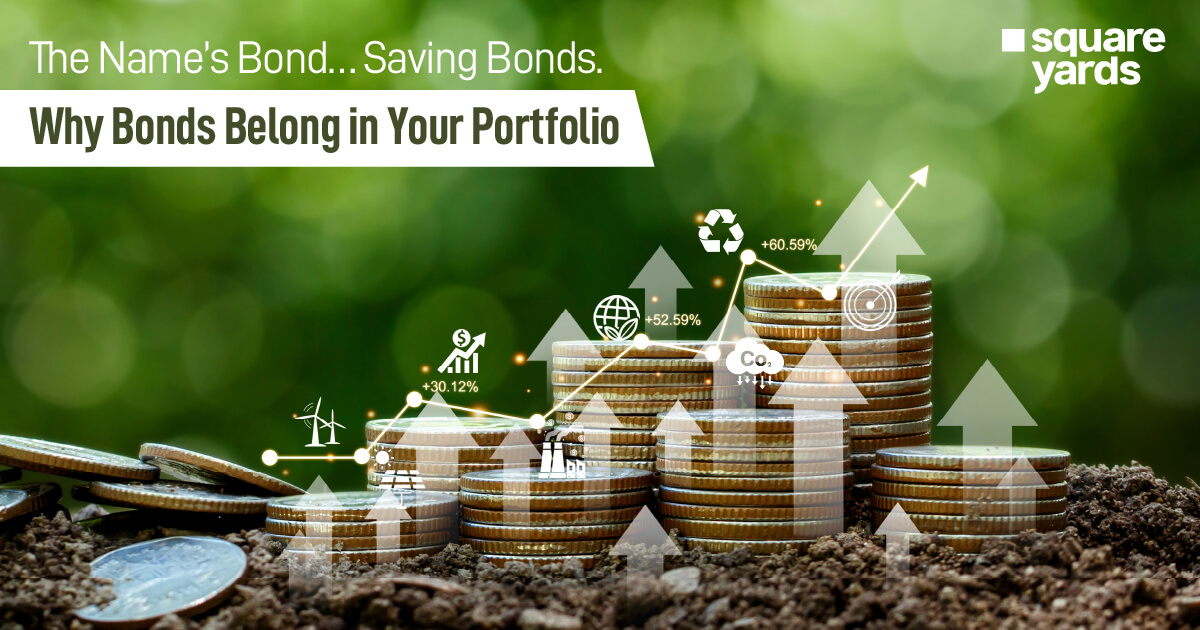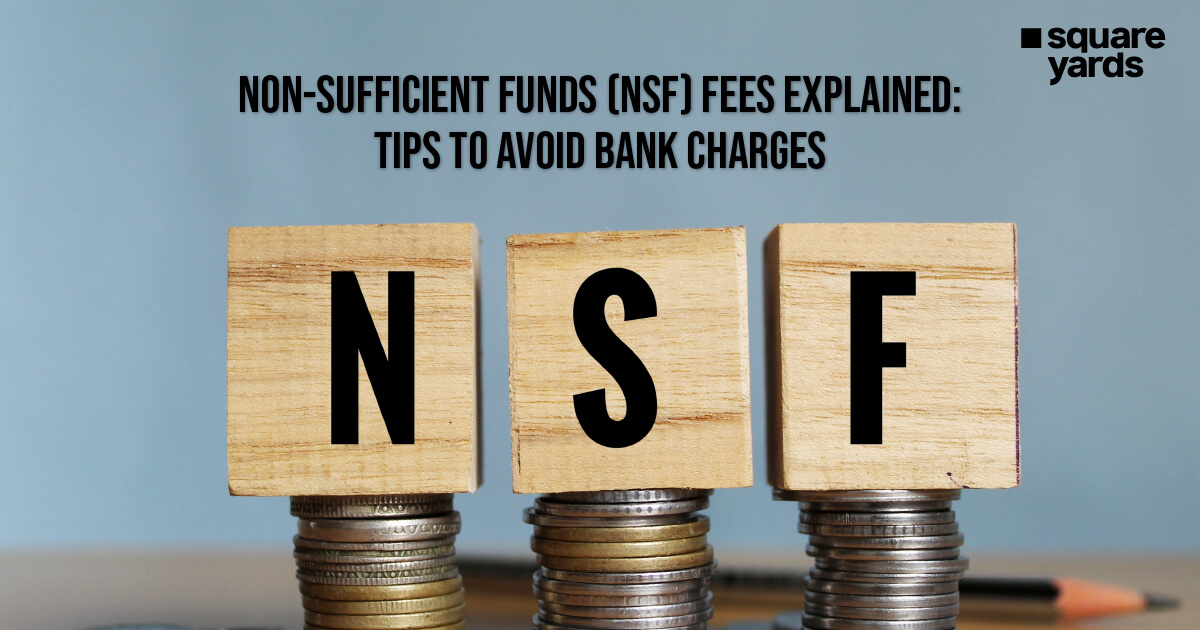Investing in bonds might be the only financial decision you make that transforms your life and your lifestyle. These guaranteed loans are the safety parachutes of the financial world that ensure timely returns and high-earned interests. Bonds are not volatile like the stock market and fraudulent like many land deals. They are protected investment blankets that depend on your risk intake, goals, savings and desired return time.
Canada Saving Bonds: Future-Proofing Your Finances
Bonds are essentially the backbone of any government or private company project that is returned after the task is completed. Whenever the government authorities or MNCs need to raise funds for any important but costly project, they will raise bonds to interested parties. If the investor is interested, they will purchase the bonds and pay huge amounts of money, hoping that their money will be returned. These can be short-term bonds with low interest rates or long-term bonds with large interest rates.
After selling their bonds, once the project is finished, the investor will receive his/ her money back from the bond issuer, along with the set interest rate. The investor holds the power here and can sell their bond even before its maturity date at a lower interest rate. When you buy bonds in Canada, you have a very high chance of excellent returns since these projects are easily verifiable and involve many other high-end stakeholders.
In simpler terms, let’s imagine that your friend wants to buy a bike and has already placed an order with the bike company. However, he/ she is unable to come up with the full amount required to pay during the delivery. So you decide to help him/ her by paying the deficit amount. Within the next 30 days, your friend will be able to return the money after his/ her salary is credited, and you will earn some goodwill amongst your peers. Investing in bonds is very easy and safe, and given the low-risk intake, it can yield good returns, but not as high as stock markets.
Why Should You Buy Bonds in Canada?
Bonds are one of the safest financial investments you can make, considering their high returns and low risk. Here are some other reasons that might persuade you to start investing in bonds:
-
- Stable Income: Bonds offer regular interest payments semi-annually, yearly bonuses, and one huge investment return at the end of their maturity period. This can assure the investor of a regular and stable return on their investment and a yearly income.
- Tax Advantages: Bond investors don’t need to worry about filing taxes on their investments, as they are exempt from any type of duty or income fee. This is only true for government-enabled or municipality bonds that will help in community development.
- Liquid Investments: Bonds can be easily bought and resold to anyone at any time. This protects the investor from market fluctuations and gives him/ her the power to gain investment returns according to personal timelines.
- Capital Preservation: Investing in bonds is extremely low-risk, so anyone can use this financial tool to secure their funds. Even if the project is left incomplete, there is assurance that the money will eventually return to investors.
- Variety of Investment Options: Bonds offer numerous investment options and projects so that customers can choose their own investment tool based on individual preferences. These can vary from low-risk government developmental projects to high-risk, high-yield bonds.
Investing in Bonds: Picking the Perfect Fit for Your Portfolio
Canada offers numerous types of bonds to its investors and regular citizens based on their budgets and preferences. Some of the factors that you can look into while selecting the right type of Canada savings bonds are:
-
- Interest Rate: Take into account the interest rates of the selected bonds as they will be the actual income earned per base investment
- Risk of Inflation: Ensure that your long-term bonds are in pace with inflation rates since the latter might reduce your purchasing power of the investment
- Credit Rate of Investments: Ensure that the company/ project you have invested in has a good credit rating so that they can meet their payment obligations
- Economic Risks: Ensure that the bond market is going strong when you invest, or else you might lose all the money invested
Once you have evaluated the factors mentioned above, you can buy any of the below-mentioned bonds in Canada:
Government of Canada Bonds
The Government of Canada bonds are the most secure since they are backed by the federal government. They are of the highest quality, risk-free, and can be sold anytime with almost the same returns as expected during maturity. These bonds can be bought using US and Canadian dollars, attracting foreign investors to buy bonds in Canada.
Minimum Investment-
$5000 for Canadian Dollars and $25,000 for US dollars
Time Horizon-
1 year to 30 years
Returns-
Fixed interest semi-annually and full-return post-maturity
Provisional Bonds
Provisional bonds are issued by the provincial government of Canada and offer very high bonds interest rates. They are not as secure as the Government of Canada Banks, and their level of quality varies per project. Provisional bonds can be sold at any time before maturity. US and Canadian investors can purchase them using their respective currencies.
Minimum Investment-
$5000 for Canadian and US dollars
Time Horizon-
1 year to 30 years
Returns-
Fixed interest is paid twice every year, and the full return is post-maturity.
Municipal Bonds
Municipal Bonds are Canadian savings bonds issued to the government for public works. Depending on the project type, their interest rate can vary from project to project and province to province. Municipal bonds are usually of high quality and can have an even higher interest rate than provisional bonds. These have tax-exempt status and are backed by government entities and local authorities, yielding unexpectedly high returns at times.
Minimum Investment-
Not set
Time Horizon-
This can vary according to the project
Returns-
Regular interest is paid twice a year; the full return is post-maturity.
High-Yield Bonds
High-yield bonds are meant for people with a high-risk appetite. They involve companies with a low credit rating—below BBB—but have repeatedly proven they can handle tough projects. Most investors refrain from these since they can be volatile, like stock markets, and often have a risk of low return. However, they offer higher returns and bonds interest rates than public and private companies.
Minimum Investment-
Not set
Time Horizon-
More than one year
Returns-
Semi-annual returns and full returns are made post-maturity.
Strip Coupons/ Residual Bonds
A strip coupon/ residual bond is a very different type of bond since it is sold in secondary markets. These are very low-risk as the project is already ongoing and can also be purchased at a discounted rate, according to market trends. There are no transaction fees or bonds interest rates in Strip Coupons. Some companies separate these two terms, so receivers of strip coupons receive pre-determined interest rates along with full payments. The residual bond owners do not receive any such interest and only receive the final payment post-maturity.
Minimum Investment-
$10,000 in US and Canadian dollars
Time Horizon-
More than one year
Returns-
Only post-maturity (Residual Bonds)
Interests and post-maturity profits (Strip Coupons)
Canada Savings Bonds
Canada Savings Bonds are low-risk investment bonds that offer a competitive rate of returns with no set minimum investment. Even ordinary citizens with very low savings can take part in buying such bonds. These don’t have annual returns and can’t be resold to anyone before maturity. You might receive a compound payment from the government once every couple of years in good faith.
Minimum Investment-
$100 to $10,000
Time Horizon-
1 year to 10 years
Returns-
Only post maturity
Investing in Bonds: Options for Canadian Investors
It is very easy to buy bonds in Canada, given the multiple facilities and ease of payment provided to citizens. You must seek professional help and visit any brokerage company or financial institution.
Purchasing Bonds Through Brokerage
Individuals can purchase bonds in Canada using a brokerage account or by connecting with a financial institution. You can also open a tax-free savings account or a Registered Retirement Savings Plan, based on your preference. To invest in bonds, all investors must deposit funds into their brokerage account. These funds will cover both client fees and the total purchase price of the bonds.
Remember to monitor the bonds purchased after the final payment.
Purchasing Bonds through ETF
An exchange-traded fund (ETF) is a pooled investment that allows the investor to purchase broad categories of bonds in a single payment. These are risky but high-yielding investments if researched properly. Any interested Canadian citizen can choose an ETF that aligns with their investment goal and desired duration of returns. You can purchase such an EFT through any financial institution and use professional management companies to oversee the portfolios.
Buying Bonds in Canada: Weighing the Risks and Rewards
Here is a list of the pros and cons of buying bonds in Canada that might help you decide to secure your future:
|
Rewards |
Risks |
|
Purchasing municipal bonds can offer income tax-free returns. So you will not have to show them in paperwork. |
Bonds and interest rates have an inversely proportional relationship. So, if your bond’s maturity rate is high, you might receive a lower rate of investment returns. |
|
Most bonds offer coupon payments every 6 months, which can serve as an added source of income every year. Some bonds even award investors with a little bonus money every year. |
Selling equity funds according to market conditions is wise, but this is not the case with bonds. Selling a bond before the maturity date will reduce the overall investment return. |
|
Bonds are less risky than stocks since the latter depends on numerous economic factors. They are often of high quality and have multiple stakeholders backing the project. |
Some bonds do not keep up with market inflation rates, reducing their overall purchasing power. |
|
High-yield savings accounts sometimes even offer higher returns than equity funds. |
Bonds are always a liquidity risk, meaning they might not even hold any power once the project is over. |
Ready to Invest? Putting Your Canada Savings Bond Knowledge to Work
Investing in Bonds is one of the smartest ways to grow your money predictably and safely. These financial tools help develop many big projects for public servicing and ensure a high return to the investor. The numerous types of bonds are meant for the comfort of investors, so they can choose their own bond type without having to fret about how their money will be used. Hence, one can say that bonds are certainly a must-have in every Canadian financial portfolio.
Frequently Asked Questions (FAQs)
How much interest do Canadian bonds pay?
The interest rate of Canadian bonds is largely determined by economic conditions, inflation and monetary policies. A 10-year Government bond will yield an interest rate of 3.76%.
Are Canadian bonds worth it?
Yes, Canadian bonds are the only financial tools that ensure the safety of the investor’s money by allowing them to sell them at any time, and they will yield maximum returns almost always.
How do Canada Savings Bonds work?
Canadian Savings Bonds are issued by the government at very low denominations and high interest rates so every citizen can become an investor. These bonds do not provide yearly returns but will be beneficial post-maturity.
How do I buy bonds in Canada?
You can easily buy bonds in Canada by contacting any financial institution or brokerage firm.
What is the 5-year Canada bond rate?
The 5-year Canada bond rate is 3.76%, which is lower than the long-term average of 4.02%.











